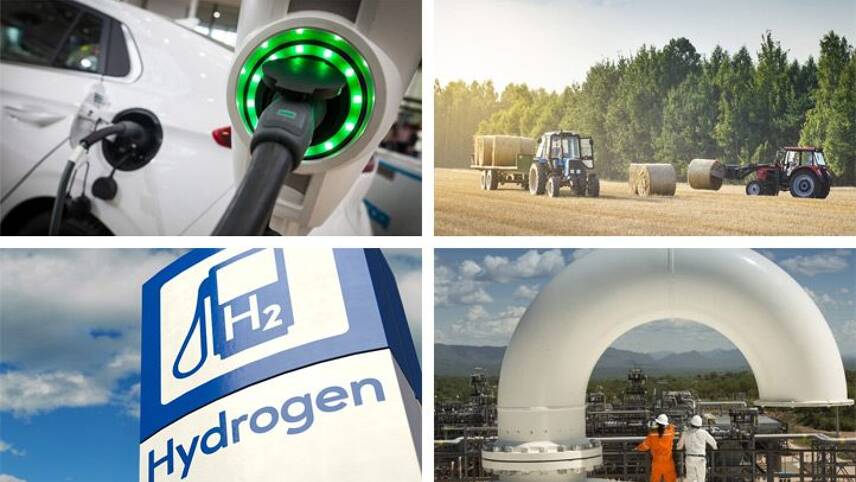Register for free and continue reading
Join our growing army of changemakers and get unlimited access to our premium content

The technologies identified could add up to €790bn of gross added value to the European economy annually by 2030
Produced by Capgemini Invent and Breakthrough Energy, the report analyses 200 potential projects and identifies 55 climate adaptation and mitigation technologies it dubs “high-impact” – i.e. their decarbonisation benefits are sizeable and their application will also generate positive outcomes across the environmental and social agenda.
In energy, technologies highlighted include bifacial solar panels, battery energy storage and large-scale green hydrogen production plants. On the latter, more than 99% of the hydrogen produced globally in 2019 was fossil-based, meaning it is not a silver bullet for high-emitting sectors in and of itself.
Deep retrofits are highlighted as a key focus for the built environment. For new builds and industrial buildings, heat pumps and flexible, automated energy technologies are recommended.
In transport, the analysis highlights the importance of a multi-modal approach, positing synthetic fuels as the top solution for long-distance flights; green hydrogen for medium-distance shipping and rail and electric mobility for small vehicles. It also acknowledges the importance of transforming urban mobility systems, spotlighting autonomous EV network pilots, car-sharing apps and multi-modal planning tools.
Carbon capture, green hydrogen, recycled materials and “massive” electricity efficiency are posited for heavy industry – as expected – while the food-land portion of the report urges increased support for plant-based proteins, next-gen fertilisers, automated digital technologies and restorative processes.
Should all technologies identified in the report receive adequate support from policymakers and industry, Capgemini Invent estimates that they will add up to €790bn of gross added value to the European economy annually. Some 871Mt of CO2e could also be avoided and more than 12.5 million jobs created. The report highlights the fact that all projects are ‘shovel-ready’ and that the scope of innovations covered are distributed across the innovation cycle and by geography and maturity.
These conclusions come at a time when more than 5.5 million jobs across the bloc have been lost due to the pandemic, and after commissioners voted for a 60% emissions reduction target for 2030.
“Many promising climate technologies are in the pipeline but now need to be scaled quickly,” Breakthrough Energy’s senior director Ann Mettler said. “The best innovation will have limited impact if it remains stuck in a lab.
“[The projects in the report] can provide a solid basis on which Europe can regain global technology leadership, help solve the climate crisis, and lay the grounds for a sustainable and job-rich recovery.”
Policy shifts
Mettler argued that a “step change” in innovation policy is necessary if the EU is to meet its climate targets, and the report provides several recommendations for bringing this change about.
First, it argues that the EU places an over-emphasis on seed and early-stage funding and should improve its approach to supporting late-stage businesses to scale up rapidly. As well as providing funding to late-stage businesses, market mechanisms must be re-designed to ensure that sales can increase, technology costs can decrease, and new low-carbon alternatives become cost-competitive with traditional, high-emitting technologies.
Gap analyses should also be conducted to identify areas which are lacking in R&D funding. Appropriate corporates and investors can then be found to support fledgeling technologies.
The report is the latest addition to the discussion around the role which emerging technologies will play in the net-zero transition. The IEA has argued that some 75% of the emissions reductions necessary to meet net-zero are dependent on technologies which have not yet reached commercial maturity, while Project Drawdown has outlined scenarios in which the majority of emissions reductions are delivered by technologies, systems and processes which already exist.
Sarah George


Please login or Register to leave a comment.